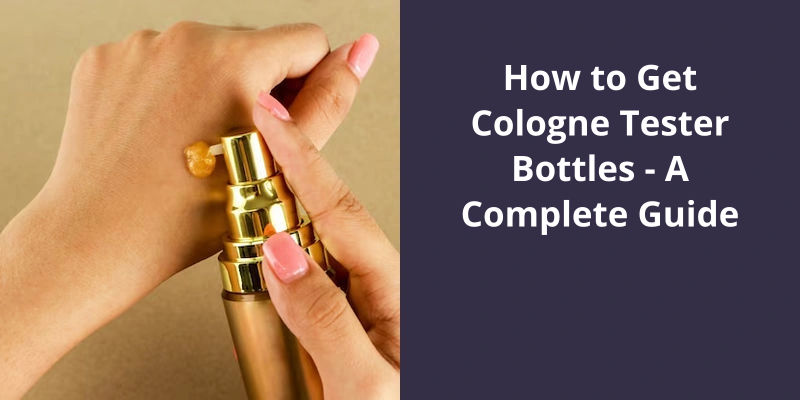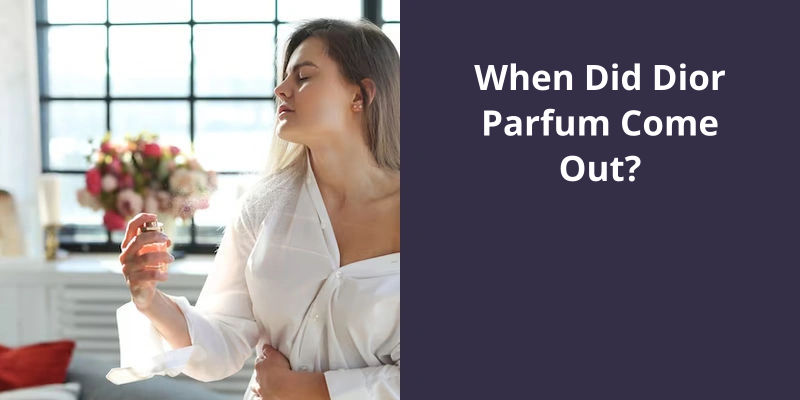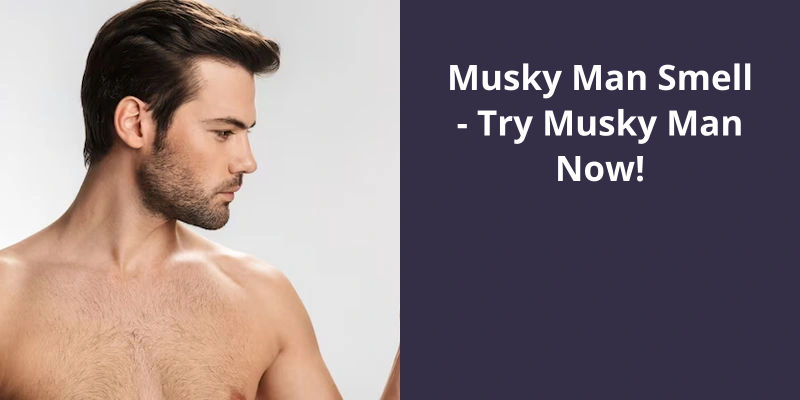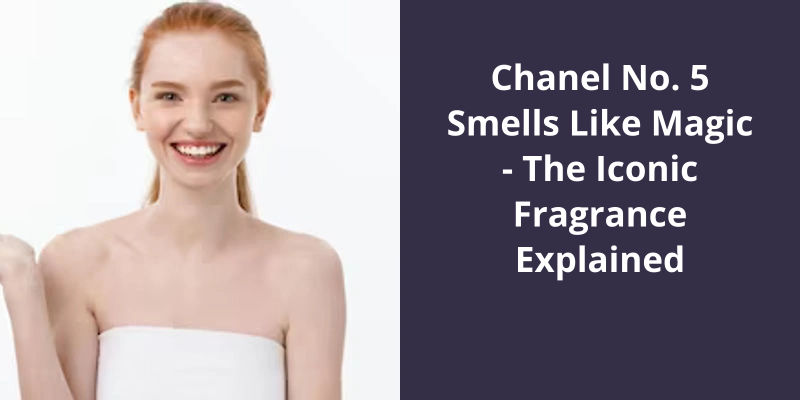As of this moment, Chanel does not manufacture a dedicated retinol product. Chanel is renowned for high-quality skincare products, but, currently, they do not include a retinol-based treatment in their line-up. Retinol, a derivative of vitamin A known for its anti-aging properties, has not yet found its way into Chanel’s skincare range. So, if you’re specifically looking for a product containing retinol, you may need to consider other skincare brands.
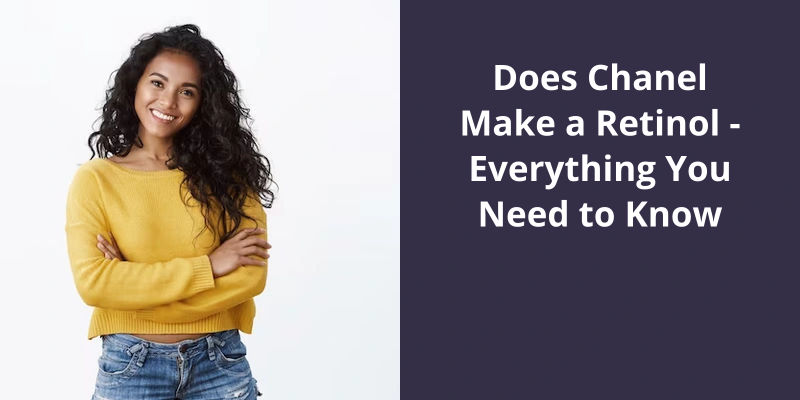
Is Chanel Skincare Clean?
Chanel has always been known for their luxurious and high-quality products. However, in recent years, consumers have become increasingly aware of the importance of clean and natural ingredients in their skincare and makeup products. This demand has led to the rise of many clean beauty brands in the industry. In response to this trend, Chanel has launched their own clean skincare and makeup line, No. 1 de Chanel.
This move towards sustainability is a step in the right direction for the brand and has positioned them as a leader in the industry. The line comprises of products such as a cleansing oil, moisturizer, foundation, and lip balm.
One of the key ingredients in the No. 1 de Chanel line is camellia. The beauty benefits of camellia are well known in Asian cultures, and Chanel has utilized this ingredient in their products to great effect. The camellia used in the No. 1 de Chanel range is a unique variety that’s grown exclusively for the brand in France. The plant is rich in anti-aging properties, and when used in skincare, it can help reduce the appearance of fine lines and wrinkles.
These ingredients help to nourish and hydrate the skin without the use of harsh chemicals. The formulas are also free from parabens, phthalates, and sulfates.
Sustainability Practices in the Beauty Industry and Chanel’s Approach.
- Use of sustainable and eco-friendly materials for packaging such as glass, metal, and paper
- Reducing waste by implementing recycling programs and using refillable packaging
- Using natural and organic ingredients in products to reduce the use of harmful chemicals
- Partnering with organizations that promote sustainability and environmental protection
- Chanel’s approach involves creating a culture of sustainability throughout the company and working towards reducing their environmental impact
- Chanel has set targets to reduce their carbon emissions and water usage, and to increase their use of sustainable materials and renewable energy sources
- Chanel also supports sustainable agriculture and works with farmers to source raw materials responsibly
- Chanel is committed to transparency and regularly reports on their sustainability progress and goals
However, there have been some debates regarding the quality of Chanel products in recent years, with some questioning whether the brand has maintained it’s standard of excellence.
Are Chanel Products High-Quality?
Chanel products have become synonymous with luxury, class, and timeless elegance. The brand takes great pride in using only the finest materials and the most skilled artisans to craft their products. From their iconic handbags and jewelry to their clothing and makeup, Chanel has built a reputation for quality that’s unrivaled in the fashion industry.
In addition to their commitment to quality, Chanel is also committed to sustainability. The brand has made a concerted effort to reduce it’s environmental impact by using sustainable materials and production methods.
The History and Evolution of Chanel as a Luxury Brand.
- Chanel was founded in 1909 by Gabrielle “Coco” Chanel in France.
- The brand quickly became known for it’s simple, elegant designs and use of high-quality materials.
- In the 1920s, Chanel introduced it’s iconic perfume, Chanel No. 5.
- During WWII, Chanel was forced to shut down it’s operations, but in 1954, the brand was relaunched with the help of designer Karl Lagerfeld.
- Lagerfeld helped modernize the brand while still staying true to it’s founding principles.
- Today, Chanel is one of the most recognizable and influential luxury brands in the world, with a range of products including ready-to-wear clothing, accessories, and cosmetics.
Source: Are Chanel skincare products worth it? Do they perform …
However, it wasn’t until several years later that Chanel would make it’s mark in the skincare industry. Before we delve into that, let’s take a look at the launch of Chanel’s first makeup collection.
When Did Chanel Start Making Skincare?
The iconic fashion brand Chanel, known for it’s timeless designs, ventured into skincare in the 1930s, a few years after it’s inception. The legendary founder of Chanel, Gabrielle Chanel, understood the importance of taking care of the skin, and thus, she introduced a range of skincare products. The first product launched was the cleansing oil that removed makeup and dirt from the face. It was followed by a moisturizer and toner. The skincare products were an instant hit among the customers and soon became a part of Chanels luxurious offerings.
In the 1950s, Chanel launched it’s first anti-aging product, the iconic Chanel N°The fragrance was not just a perfume; it also had skincare benefits. Infused with essential oils, it nourished and hydrated the skin, leaving it softer and smoother. The launch of Chanel N°5 revolutionized the fragrance industry, and it became one of the most iconic fragrances in the world.
The brands commitment to quality and excellence resulted in the creation of iconic products like the Hydra Beauty Serum and Le Lift Crème. These products were designed to hydrate and rejuvenate tired and dull-looking skin, giving it a radiant and youthful glow.
Today, Chanels skincare line includes a wide range of products that cater to different skin concerns. From cleansers to serums to moisturizers, the brand has something for everyone.
The Ingredients Used in Chanel Skincare Products and Their Benefits
Chanel skincare products make use of a range of ingredients that offer numerous benefits for the skin. These ingredients are specially selected for their proven effectiveness, and they include natural extracts, vitamins, and minerals. For example, hyaluronic acid, which is found in many Chanel skincare products, helps to hydrate and plump the skin, reducing the appearance of fine lines and wrinkles. Other ingredients, such as white lotus, help to soothe and calm the skin, while vitamin C works to brighten and even out the complexion. Ultimately, the ingredients used in Chanel skincare products are designed to nourish and protect the skin, leaving it looking and feeling healthier, brighter, and more radiant.
Coco Chanel was not only the founder of the iconic fashion house that bears her name, but also the first face of one of it’s most famous fragrances. Her legendary status in the fashion industry was secured by her daring and innovative designs, and her unique personal style became an inspiration for generations of designers and fashionistas. But her influence extended far beyond the world of fashion, and her legacy continues to inspire and fascinate people worldwide.
Who Was the First Face of Chanel?
However, the first model to ever wear Chanel designs on the runway was a woman named Suzy Parker in 195She was a notable model and actress in the 1950s and 1960s, known for her striking beauty and grace on the runway. Parker was also the star of Coco Chanels first-ever television commercial, which aired in 1957.
Although Parker was not a spokesperson for Chanel per se, she was one of the most iconic models of the 1950s and was seen by many as the face of the brand. This helped to solidify Chanels status as a fashion icon and make it one of the most recognizable brands in the fashion industry. In addition to Parker, there have been many other famous faces associated with Chanel over the years, including Inès de la Fressange, Claudia Schiffer, and Lily-Rose Depp.
Despite the many models and celebrities who’ve graced Chanels catwalks and advertisements over the years, it’s Coco Chanel herself who remains the most enduring face of the brand. Her revolutionary designs and unwavering commitment to quality continue to influence fashion today, and her legacy lives on in every piece of Chanel clothing, accessory, and fragrance. For many people, Chanel represents the pinnacle of luxury fashion, and it’s in large part thanks to Coco Chanel and her groundbreaking designs that it’s become such an enduring cultural icon.
Today, Chanel is still one of the most popular and influential fashion brands in the world. It’s collections continue to be coveted by fashionistas and trendsetters alike, and it’s iconic double-C logo is easily recognizable to even the most casual fashion observer.
The Impact of Coco Chanel on the Fashion Industry
- Introduction of more comfortable and practical clothing for women, including unisex sportswear and suits.
- The popularization of the “little black dress” as a versatile and essential wardrobe staple for women.
- Innovative use of materials such as jersey and tweed in high-end fashion, breaking away from traditional luxury fabrics such as silk and velvet.
- Incorporation of masculine elements such as the sailor blouse and Breton stripes into women’s fashion.
- Celebration of androgyny and independence through her personal style and promotion of the “flapper” look.
- Establishment of the Chanel brand as a symbol of sophistication, luxury, and timeless elegance.
- Inspiration for countless fashion designers who continue to pay homage to her legacy through their designs.
From humble beginnings selling hats, Gabrielle “Coco” Chanel built a fashion empire that’s endured for over a century. With her keen sense of style and business acumen, she expanded her offerings to include clothing and accessories that epitomized timeless elegance and sophistication. Her legacy continues to influence fashion today, making her one of the most iconic figures in the industry. But what was Chanel’s first product, and how did she become the legendary designer we know today? Let’s take a closer look.
What Was Chanel’s First Product?
But it was her introduction of the little black dress in the 1920s that really cemented her place in the fashion industry. At a time when black was associated with mourning, Chanel took the color and turned it into an elegant and timeless staple for womens wardrobes. The dress was simple yet sophisticated, with clean lines and no unnecessary frills, making it both versatile and affordable. Celebrities and everyday women alike embraced the look, and it remains a staple in fashion to this day.
Despite her success, Chanels personal life was often fraught with drama and scandal. She’d affairs with wealthy men and was rumored to have been a Nazi sympathizer during World War II. These controversies have cast a shadow over Chanels legacy, but her contributions to the fashion world can’t be denied.
Today the Chanel brand continues to thrive, with creative director Virginie Viard carrying on Chanels legacy of innovation and elegance. The fashion house produces a wide range of products, from haute couture to perfume to accessories, all bearing the iconic double-C logo that’s become synonymous with luxury and sophistication. And while Chanels first product may have been hats, her bold vision and unwavering commitment to quality and style have created an enduring fashion empire.
The Evolution of Chanel’s Brand From It’s Beginnings to Modern-Day Trends and Innovations
- History of Chanel brand
- Early years of Coco Chanel
- Introduction of iconic Chanel designs, such as the little black dress and Chanel No. 5 perfume
- Chanel’s influence on women’s fashion during the 1920s and 1930s
- Pause in operations during World War II
- Reinvention of the Chanel brand by Karl Lagerfeld in the 1980s
- Modern-day innovations, such as the Chanel Boy Bag and the Cruise Collection fashion show
- The significance of sustainability and ethical practices in the Chanel brand
Conclusion
While they do offer a variety of skincare items that target aging concerns, such as fine lines and wrinkles, there’s no definitive evidence or announcement from the brand regarding a retinol-specific offering. As with all skincare purchases, it’s essential to research and carefully examine product labels and ingredient lists to ensure optimal results for individual skin types and concerns. Overall, while Chanel may or may not currently have a retinol product, there are many alternatives and options available in the skincare market for those seeking to combat signs of aging.


